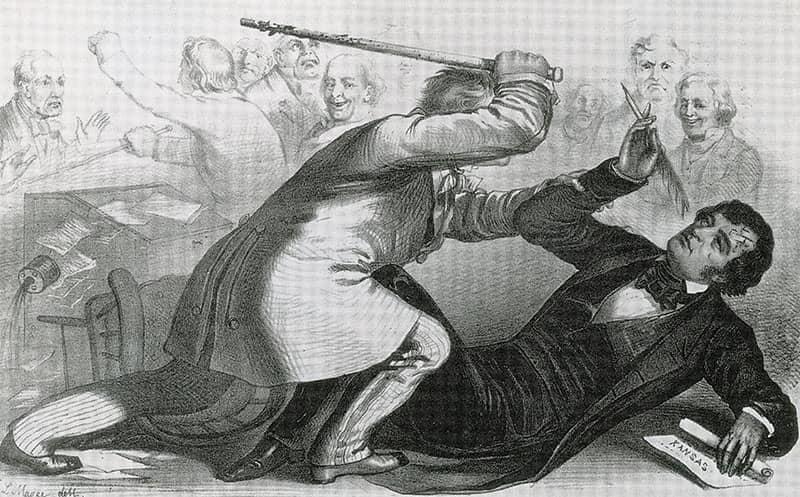
Spend 10 minutes on social media and you'll come across a political rant. Intense partisanship seems to be everywhere today, but even as studies emerge about the many ways Americans are divided in 2020, what often gets overlooked is that partisanship has been a key feature of our political system since its founding.
Honors students will have the opportunity to take the long view in the Spring 2021 Retro Readings course Partisanship, taught by Noah Pittman, Honors College associate dean of enrollment.
"Political parties were not really addressed in the U.S. Constitution, but soon after ratification, they became an important part of our system," Pittman explained. "Partisanship has shaped so much of the history of the United States. There are some fundamental ideas that many Americans agree on, but there's even more we disagree on."
Next spring Pittman will examine various historic events in his Partisanship course in an effort to provide greater context for the argument that partisanship, for better or for worse, is deeply ingrained in the American political system.
The course will begin with an examination of the debate over the ratification of the U.S. Constitution, an argument that would spill over to George Washington's administration and led to the original formation of political parties.
Next, students will discuss the argument over slavery that overwhelmed the national discourse for decades before the ratification of the 13th Amendment soon after the Civil War had ended.
The class will eventually turn to the key political issues that have dominated American politics since the beginning of the 20th century, including civil rights, the social safety net, and the use of American military force abroad. Throughout the course, various questions will be considered, including:
- How have American political parties evolved over time?
- How has the media contributed to partisanship in the United States?
- In what ways has partisanship impacted the effectiveness of our political institutions? How can this be addressed?
- Looking at the historical record, can we realistically say that 2020 is the apex of American political partisanship?
Honors students must apply to participate in this Retro Readings course, and seats are typically capped at 12 per class. The deadline to apply is 11:59 p.m. Friday, Oct. 30.
In Honors College Retro Readings courses, students from all colleges tackle classic texts from a contemporary, multidisciplinary point of view. These 75-minute, one-credit-hour honors courses pair students with expert faculty to provide them with a "Great Books" experience, one of the hallmarks of a liberal arts education. Previous topics include the Quran, the works of Darwin and Tolkien and J.K. Rowling's Harry Potter series.
Contacts
Hiba Tahir, editor
Honors College
479-575-7678,
Kendall Curlee, director of communications
Honors College
479-575-2024,